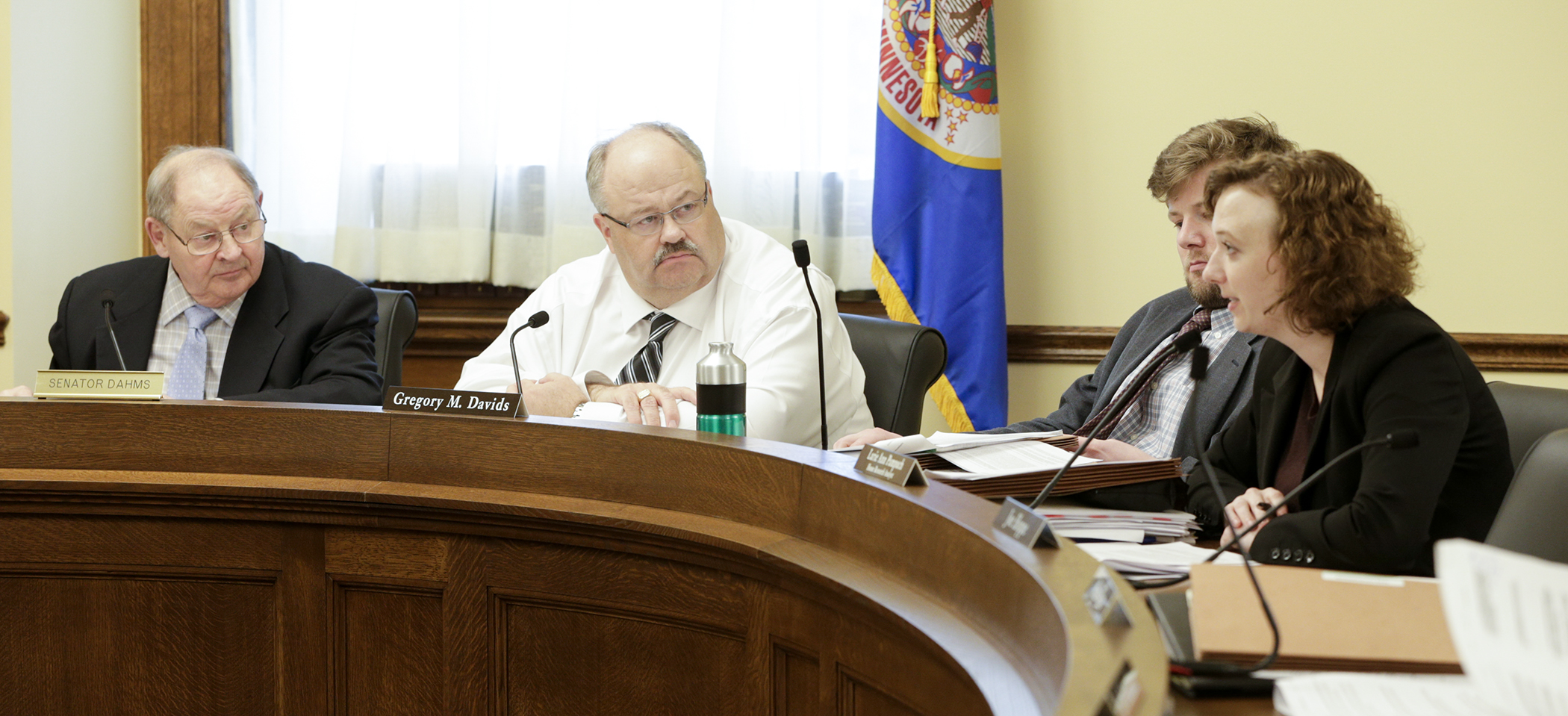Federal approval hangs over compromise reinsurance proposal

Lawmakers agreed Wednesday that if the federal government doesn’t chip in, Minnesota won’t go through with its plan to establish a $542 million state-based reinsurance program.
Sponsored by Rep. Greg Davids (R-Preston) and Sen. Gary Dahms (R-Redwood Falls), HF5*/SF270, as amended, would use a combination of potential federal funds and the state’s General Fund and Health Care Access Fund to launch a program legislators believe will help reduce individual insurance premiums and stabilize the marketplace. A bipartisan conference committee approved the report, sending it back to the House and Senate chambers for a vote.
“While this bill may not be perfect, the alternative is not good,” Davids said, adding later: “If this bill isn’t signed by the governor, I don’t think we have a market for 2018. I’m serious.”
Gov. Mark Dayton has pushed for what’s called a State Innovation Waiver from the federal government. Added Wednesday, a provision in the report states the reinsurance program would be contingent on a successful waiver from the Trump administration, which would provide federal funding to Minnesota.
WATCH Wednesday's meeting of the Conference Committee on HF5
The agreement calls for the Minnesota Comprehensive Health Association, a Legislature-created nonprofit, to subsidize insurance companies carrying high-risk customers. Once the insurance companies hit $50,000 in claims, they would be eligible for an 80 percent subsidy – up to $250,000.
The lone dissenter, Sen. Tony Lourey (DFL-Kerrick), said too many questions remain. The insurance companies haven’t guaranteed they’ll stay in Minnesota’s market, they haven’t guaranteed the subsidies will lower premiums and the use of the Health Care Access Fund – usually reserved for aid to low-income residents – is problematic.
“We have no promises whatsoever,” Lourey said.
Sen. Michelle Benson (R-Ham Lake) said that it’s difficult for health insurance CEOs to outwardly commit to something like that with so many other variables. “Their intent is to stay in Minnesota.”
Last week, the governor said he wouldn’t sign a reinsurance bill without a response from the insurance industry. But on Wednesday, Davids said he would be “very surprised if this bill is at risk.”
Kathryn Kmit, director of policy and government affairs with the Minnesota Health Plans Association, which represents nonprofit health care plans, said the big if – relying on the federal government – makes her “nervous,” but health plans are “very committed to serving Minnesotans.”
Related Articles
Search Session Daily
Advanced Search OptionsPriority Dailies
Stable budget outlook projects $3.7 billion surplus now, no deficit in next biennium
By Lisa Kaczke The projected surplus for Fiscal Years 2026-27 is now higher than it was in the November estimate, and no deficit is projected for the next biennium.
“Minnesota’s budge...
The projected surplus for Fiscal Years 2026-27 is now higher than it was in the November estimate, and no deficit is projected for the next biennium.
“Minnesota’s budge...
Legislative leaders set 2026 committee deadlines
By Lisa Kaczke Legislative leaders on Tuesday officially set the timeline for getting bills through the committee process during the upcoming 2026 session.
Here are the three deadlines for...
Legislative leaders on Tuesday officially set the timeline for getting bills through the committee process during the upcoming 2026 session.
Here are the three deadlines for...